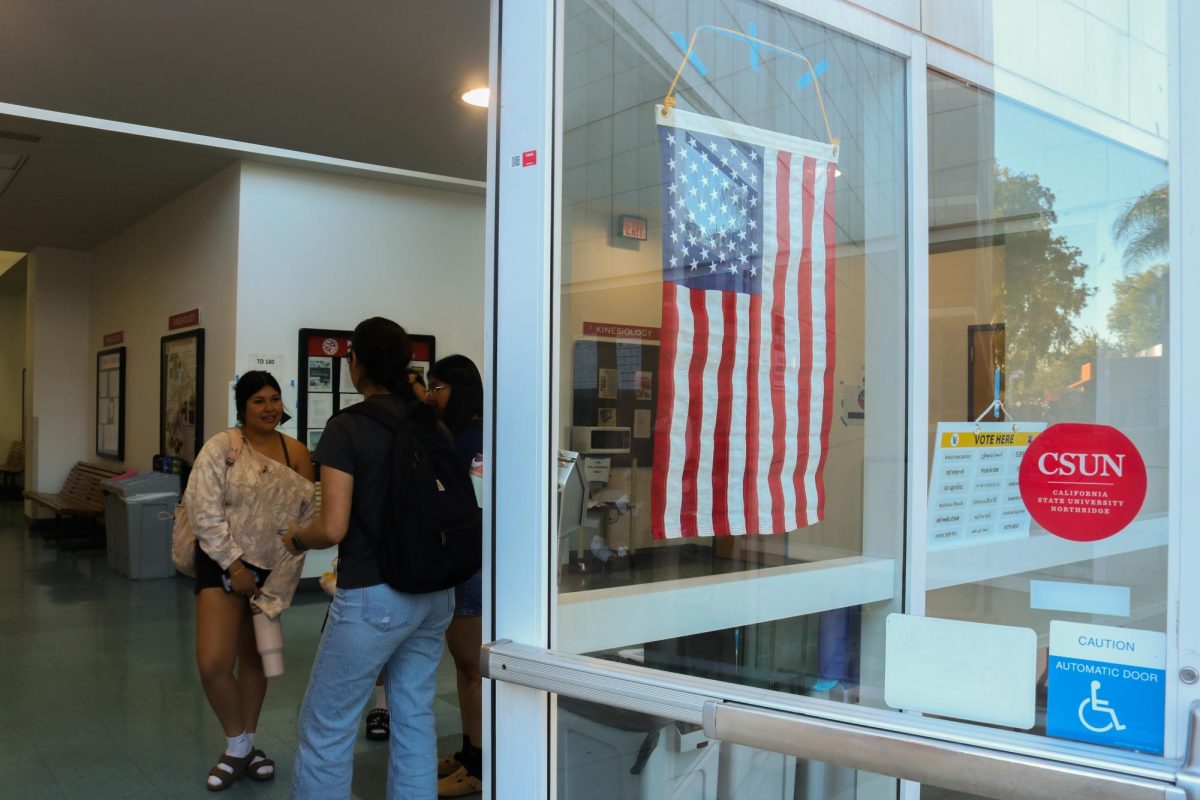>>CORRECTION: An earlier version of this story incorrectly stated the CSU Board of Trustees set to vote on the CFA agreement on Nov. 13, rather than Nov. 12.
The tentative agreement between the California Faculty Association (CFA) and the California State University (CSU) was ratified by CFA members Monday night with 91 percent of the members voting in favor of the contract, said Nate Thomas, president for the CFA CSUN Chapter.
With its passage, the three-year agreement will go to a vote by the CSU Board of Trustees on Nov. 12. If the board votes to ratify the contract as well, it will go into effect immediately, bringing with it several provisions for which CFA members have been fighting for months.
“This is the best contract we’ve had in years,” Thomas said. “Is it the best, is it 100 percent perfect? No. But it’s better than what we had.”
The new contract will increase salaries by 1.6 percent for all faculty, according to the agreement. Salaries will also rise for tenure-track faculty, coaches with at least six years experience, and other types of faculty by three percent — on top of the initial faculty-wide increase.
All salary increases are retroactively effective July 1.
John Paul Nuño, assistant professor of history, said the salary increases will directly and positively impact students’ educations.
“I think if you have faculty that are able to concentrate on their work rather than on their financial situation, then that will also affect the quality of the courses, and then also will be able to cater to the students a little bit better,” Nuño said. “If we’re in good working conditions, then we can focus on our mission to teach.”
But Harry Hellenbrand, CSUN provost and vice president of academic affairs, disagrees. He feels students will not be impacted by the contract negotiations because he said the professionalism of the faculty stays intact.
“I think it probably won’t have a great impact on them,” Hellenbrand said. “The faculty are very professional and would do good work in the classroom whether the contract was approved or not approved or whether it was still in negotiations.”
Nuño hasn’t received a raise in his three years at CSUN. He said he is only able to meet his immediate financial needs with his current salary. But if the agreement is ratified by the trustees, Nuño will be able to finally save a little bit of money.
“I think possibly it will give me a little more room to do that,” Nuño said. “Not a whole lot, but just a little more room to be able to maybe save or do a little bit more to meet my immediate needs.”
However, the raises in pay are only for the 2014-2015 fiscal year, which coincides with the first year of the agreement. Afterward, negotiations will re-open on May 1, 2015, to iron out the salary structure for the next two fiscal years.
Lillian Taiz, president of the CFA, said in October that if salary negotiations for years two and three don’t go well, faculty will be able to strike.
“What we’ve done is to agree that this will be a very serious conversation,” Taiz said. “If there are problems that we can’t agree on, then we’re going to have to duke it out.”
The CFA most recently voted to strike in May 2012, citing disagreements with the CSU on salary, workload and other issues. However, a tentative contract agreement was reached between the two sides two months later after not having one for two years.
The CSU will also give $2 million for a “system-wide equity program” for the 2014-2015 fiscal year, according to the new agreement. That money is for faculty with multiple years of experience that are being paid less than newer teachers, Taiz said.
But Kris Kouri, a lecturer at CSUN who teaches sociology and gender women’s studies, isn’t singing the praises of the new agreement just yet. Kouri said in a recent interview that the 1.6 percent raise may not be enough.
“I’ll take it, but it’s not going to help me that much,” Kouri said. “Anything will help, but that’s very little.”
The contract gives all CSUs the option of contributing their own funds in order to balance out the salaries of older and newer faculty. Hellenbrand said the administration will have meetings in late December and January to discuss equity for CSUN’s faculty.
“We haven’t made them yet,” Hellenbrand said about plans to contribute equity funds. “We haven’t really seen the parameters of what they’re calling equity and how it should be determined.”
Faculty members were mostly focused on issues of salary and workload, Thomas said. But the new agreement also made some other changes that could benefit faculty.
The president of any CSU may offer emergency leave to a faculty member who is a victim of domestic or sexual assault, or a violent crime, according to the agreement.
A brand-new provision in the agreement promises to give new professors fewer classes so they can perform other tasks such as research or creative activities.
For the first two years of a faculty member’s probationary period, they will teach a maximum of 18 direct weighted teaching units per week, which equates to about 54 actual hours of course preparation, holding office hours, grading and other teaching efforts, according to a 2013 CSU document from the office of the CSU chancellor.
The CSU previously offered a 21-teaching-unit maximum in August, according to a bargaining proposal from that time.
Nuño feels the new agreement could be the jumping-off point to faculty having even more financial relief.
“I think that it’s a good step,” Nuño said, “and it preserves our ability to hopefully take more positive steps coming out of the difficult economic times that we’ve just had.”










